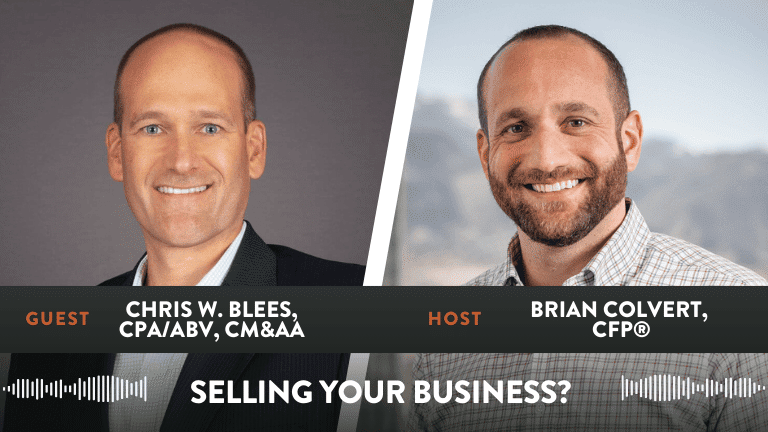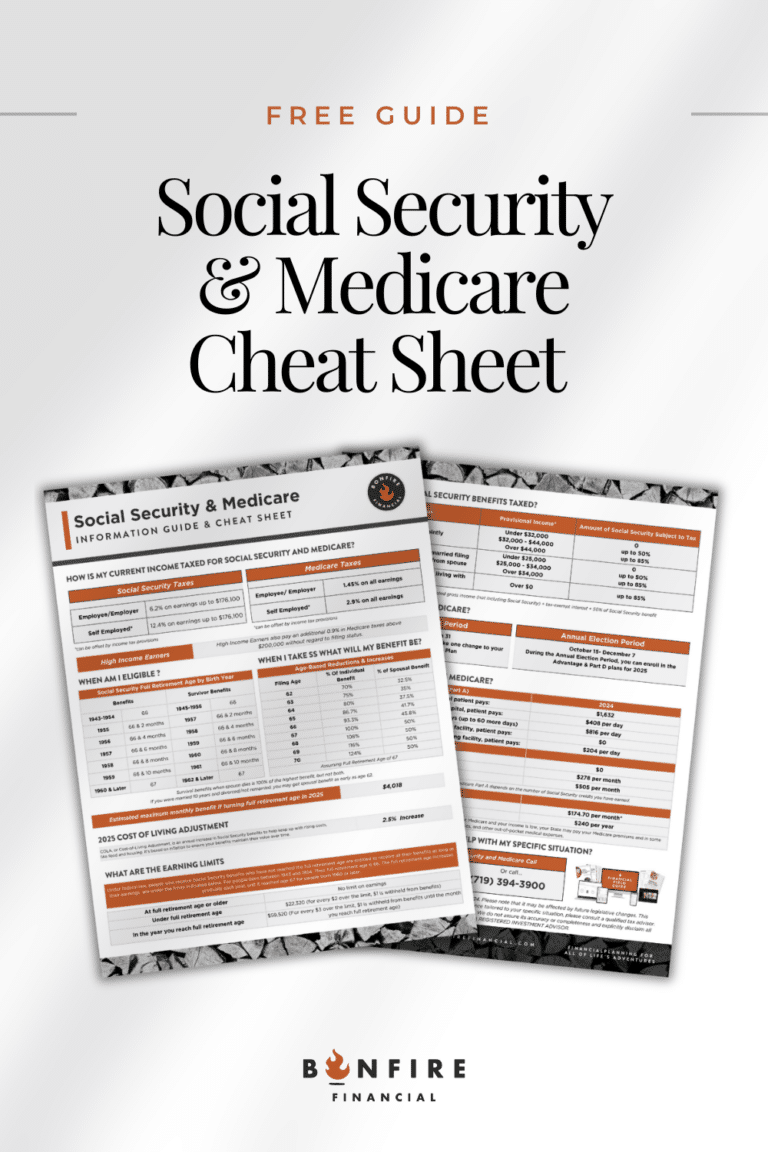If you’ve built a successful business and are considering selling, you likely have a lot of questions. What’s my company worth? Is now a good time to sell? How do I structure the deal to maximize my return? In this episode of The Field Guide, Brian sits down with Chris Blees, CPA/ABV, CM&AA, an expert in mergers and acquisitions (M&A) and business exits, to unpack the M&A landscape and offer valuable insights for business owners preparing for a sale. Whether you’re planning an exit in the next few years or just starting to think about it, this guide covers market trends, valuation strategies, deal structures, and key mistakes to avoid when selling your business.
Listen Now:
iTunes | Spotify | iHeartRadio | Amazon Music
—–
Is Now a Good Time to Sell? The Current M&A Landscape
According to Chris, the M&A market remains strong despite economic shifts and fluctuating interest rates. While high interest rates have softened some areas of the market, the lower middle market (companies valued between $10 million and $50 million) continues to see strong demand.
The reason?
There’s still an enormous amount of private equity capital and corporate cash looking for deals. Large companies and well-funded private equity firms are often cash buyers, meaning they’re not as affected by rising interest rates as smaller leveraged buyers. This means that for business owners in this range, valuations are holding steady, and in some industries, even increasing.
Industries Seeing High Demand and Strong Valuations
Certain industries consistently attract buyers and command strong valuations due to their stability, growth potential, and recurring revenue models. Here’s a closer look at some of the hottest industries in today’s M&A market:
- Manufacturing – The manufacturing sector, particularly in niche markets and specialized B2B services, continues to attract strong buyer interest. Companies that integrate technology, automation, or supply chain efficiencies are especially appealing to investors and strategic acquirers.
- Software & Technology – Tech businesses, particularly those with SaaS (Software-as-a-Service) models, command high valuations due to their scalability and predictable recurring revenue. Cybersecurity, AI-driven solutions, and cloud computing businesses are in particularly high demand.
- Medical & Healthcare Services – Businesses in healthcare-related sectors, such as medical billing, outpatient surgery centers, physical therapy practices, and specialized medical device manufacturing, remain hot commodities. With an aging population and continued healthcare innovation, buyers see strong long-term growth potential in these fields.
- Home & Commercial Services – The services industry, particularly in areas like HVAC, roofing, commercial landscaping, and facility maintenance, has seen a surge in interest. Many of these businesses have transitioned to subscription-based service contracts, which create reliable recurring revenue streams—making them even more attractive to investors.
- Construction & Trades – Historically, construction-related businesses were difficult to sell due to their reliance on cyclical demand. However, specialized trades with service agreements and maintenance contracts, such as plumbing and electrical services, have become highly sought after.
- E-commerce & Consumer Brands – E-commerce businesses with strong brand loyalty, direct-to-consumer (DTC) models, and proprietary products are in high demand. Buyers are particularly interested in companies with well-established supply chains and efficient logistics.
One key takeaway from Chris? Companies with strong recurring revenue models tend to sell for higher multiples than those reliant on one-time transactions. Subscription-based services, long-term contracts, and membership models can significantly enhance a company’s valuation and buyer appeal.
Valuation: What Drives Your Business’s Worth?
When it comes to valuing a business, it’s all about earnings and multiples. Most buyers look at a company’s EBITDA (Earnings Before Interest, Taxes, Depreciation, and Amortization) and apply a multiple based on the industry, growth potential, and risk factors.
Some key factors that impact valuation include:
- Profitability and Growth Trends – Buyers want to see consistent revenue and profit growth.
- Customer Concentration – If too much revenue comes from a single client, buyers see risk.
- Owner Dependence – If the business can’t run without the owner, valuation takes a hit.
- Recurring Revenue – Subscription or long-term contract models drive higher valuations.
- Market Conditions – High demand in your industry can drive up multiples.
Chris emphasizes that multiple expansion (finding a buyer willing to pay a higher multiple) is often more impactful than increasing earnings alone. Finding the right buyer can double or even triple a business’s value.
How Interest Rates Are Affecting M&A
Higher interest rates generally slow M&A activity by increasing borrowing costs. However, for the lower middle market, where many buyers use cash instead of debt financing, interest rate fluctuations have had minimal impact on valuations.
In contrast, smaller businesses (valued under $5 million) and very large deals (over $100 million) are more sensitive to rising rates because buyers typically rely on financing. If your business falls in the $10-$50 million range, you may still be in a strong position to sell.
Structuring the Deal: Cash, Earnouts, and Hybrid Exits
Every sale is different, and how the deal is structured plays a major role in how much a seller ultimately takes home. Some common deal structures include:
- All-Cash Deals – The dream scenario, but less common unless the business has strong financials and low risk.
- Earnouts – A portion of the sale price is contingent on future performance, often used when there’s uncertainty about revenue.
- Equity Rollovers – The seller retains partial ownership, often leading to a more lucrative “second bite of the apple.”
- Seller Financing – The seller provides financing to the buyer, reducing upfront cash but enabling a higher overall price.
Chris points out that a hybrid exit strategy—selling 70-80% of the business while keeping 20-30% equity—can be a game-changer. Many sellers who take this approach make more on their second sale than the first, as their retained equity grows in value.
Preparing to Sell: What Business Owners Need to Do
If you’re thinking about selling in the next three to five years, now is the time to start preparing. Here’s what you should focus on:
- Build a Strong Management Team – Buyers want to see a company that can run without the owner.
- Diversify Your Revenue Stream – Reduce reliance on a single client or revenue source.
- Clean Up Your Financials – Work with a CPA to ensure accurate, well-documented financial statements
- Address Cybersecurity & Compliance – Ensure your business meets all legal and regulatory requirements.
- Work with a Tax Advisor – Strategic tax planning years in advance can significantly reduce the tax burden from a sale.
Biggest Mistakes Sellers Make
According to Chris, the biggest mistake sellers make is focusing too much on one aspect of the deal—typically the upfront cash payout. The best deals involve a balanced mix of cash, equity, and earnouts. Other mistakes to avoid:
- Waiting too long to plan – Selling a business takes time, and waiting until you’re “ready” often means leaving money on the table.
- Not having a strong management team – If your business depends too much on you, buyers get nervous.
- Not considering tax implications – Proper tax structuring years in advance can save millions.
- Ignoring due diligence risks – Buyers will scrutinize legal, financial, and operational risks. Get ahead of them.
Final Thoughts: Is It Time to Sell?
Selling a business is one of the most significant financial decisions an owner can make. The key is preparation—understanding valuation, structuring the deal wisely, and ensuring your company is attractive to buyers.
As Chris explains, many business owners wait too long to start preparing for a sale. The best time to start planning? At least three to five years before you want to exit.
Next Steps
If you’re considering selling your business and want expert advice on valuation, M&A strategies, and tax implications, Chris and his team at Biggs Cofford Capital can help. They are based in Colorado Springs but serve clients across the country. Reach out to them today to get started.
 Client Login
Client Login







